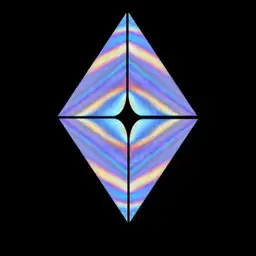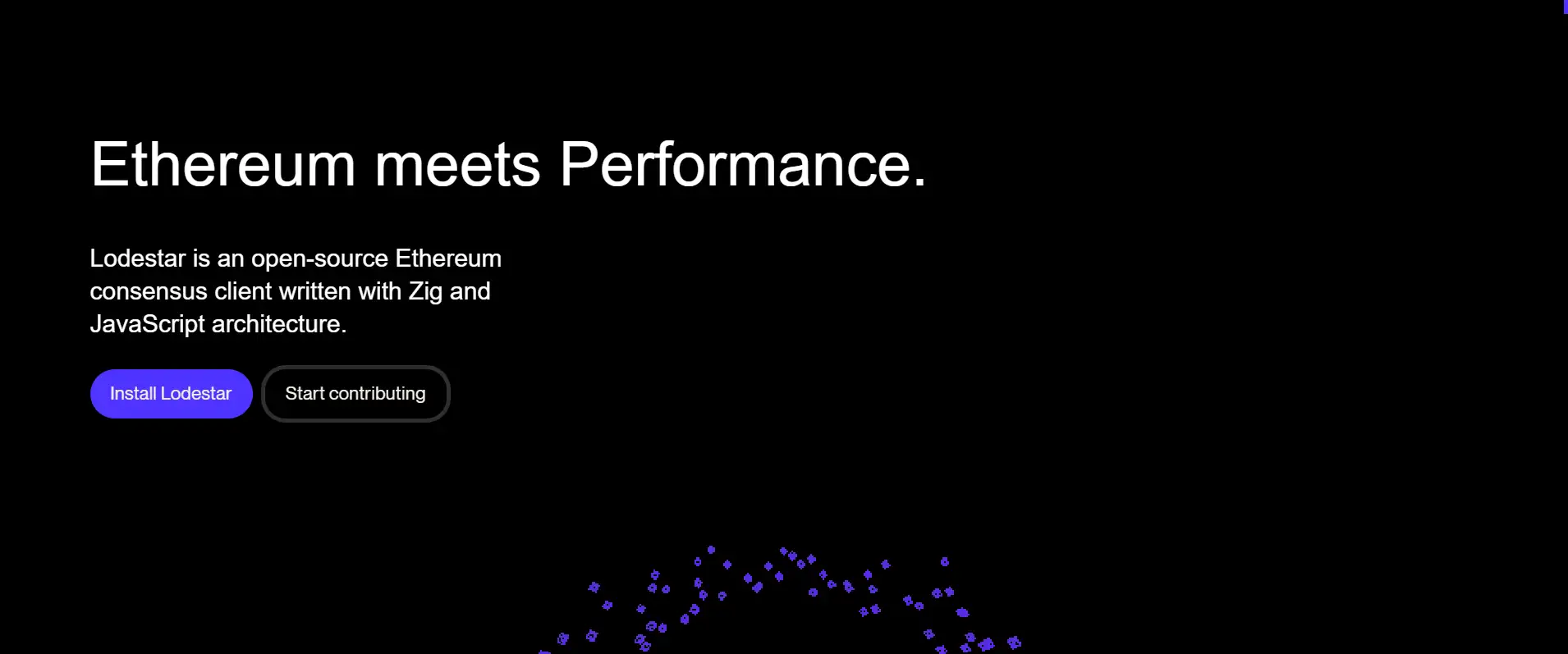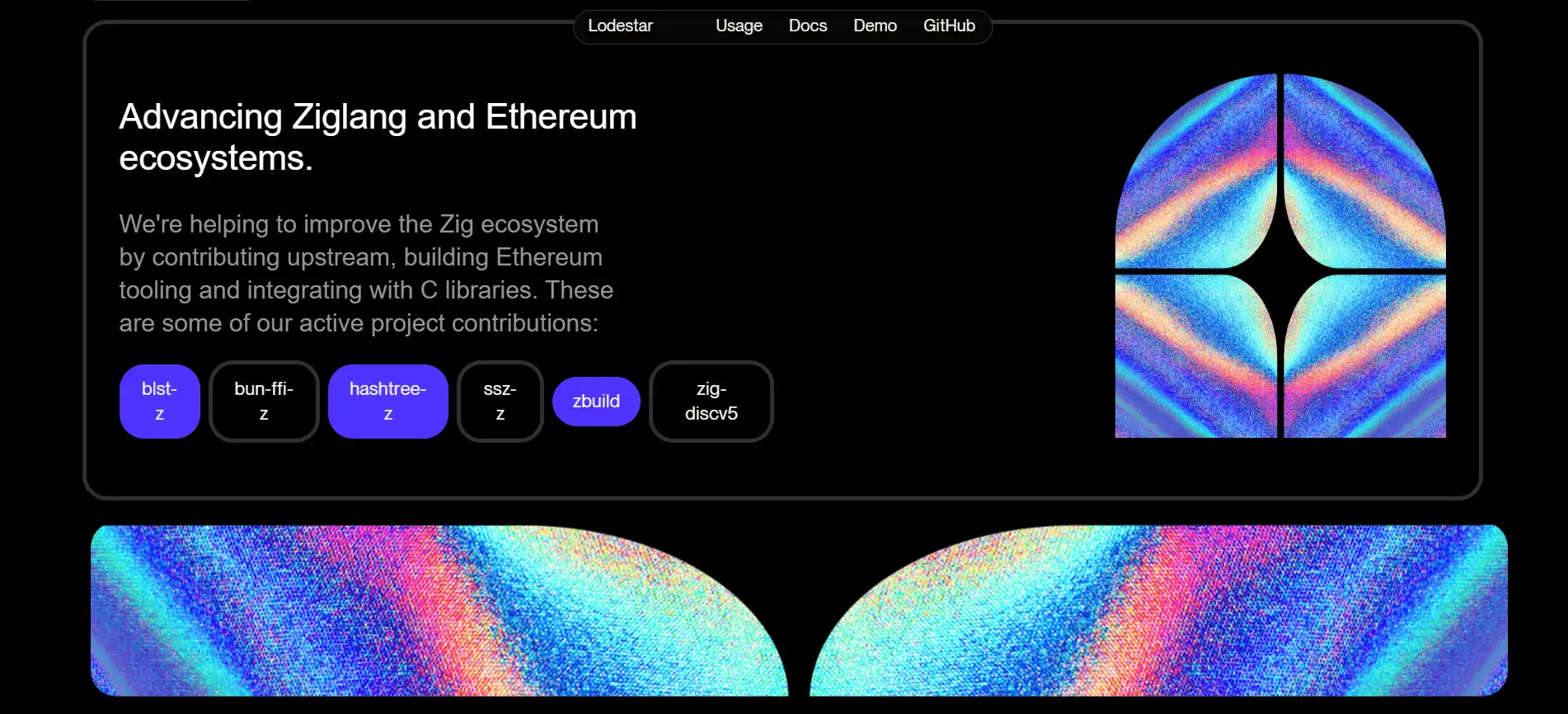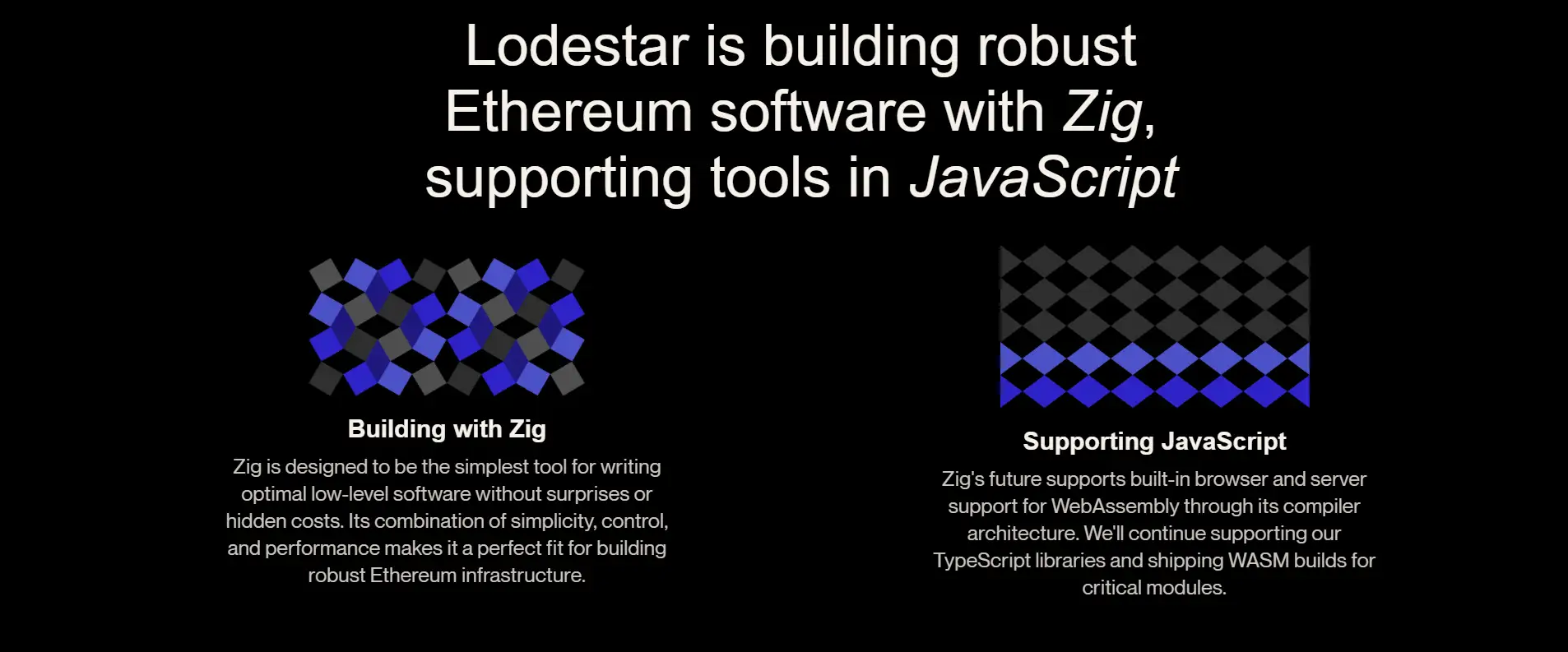About Lodestar
Lodestar is an open-source Ethereum consensus client developed and maintained by ChainSafe. Designed for performance, security, and client diversity, Lodestar is written with a combination of Zig and JavaScript to offer a unique balance between low-level efficiency and developer accessibility. It serves as both a beacon node and a validator client for the Ethereum blockchain, enabling users to run their own full nodes, participate in validation, and strengthen the Ethereum network’s resilience.
By leveraging Zig’s systems-level performance and JavaScript’s flexibility, Lodestar provides powerful tools, libraries, and integrations for Ethereum developers. It supports the growing Zig ecosystem by contributing upstream, building Ethereum tooling, and integrating with C libraries. As a minority consensus client, Lodestar plays a vital role in reducing the risks of correlated failures and ensuring the long-term stability of the Ethereum network. With active contributions from a vibrant community, it is a prime choice for developers seeking a performant, open-source, and standards-compliant Ethereum client.
Lodestar was created to address two critical needs in the Ethereum ecosystem: the demand for high-performance consensus clients and the importance of client diversity for network security. It operates as both a beacon node and validator client for Ethereum’s Proof of Stake consensus, allowing users to participate directly in block proposal, attestation, and finality processes. By doing so, Lodestar enables Ethereum stakeholders to secure the network while earning rewards for honest participation.
The client is built with Zig — a modern systems programming language known for its simplicity, control, and safe memory management — making it ideal for writing optimal low-level software without hidden performance costs. Lodestar also supports the JavaScript and TypeScript ecosystems, providing WebAssembly (WASM) builds and developer libraries for easy integration. This hybrid approach ensures developers can enjoy both performance and accessibility.
Lodestar contributes to the Ethereum ecosystem by advancing upstream projects like blst-z, bun-ffi-z, hashtree-z, ssz-z, and zig-discv5. These tools enhance cryptography, serialization, networking, and build processes, creating a stronger foundation for Ethereum protocol development. Beyond development tools, Lodestar offers utilities like BLS Keygen, Simple Serialize, ENR App, and the Flare CLI for protocol experimentation and operations.
The importance of client diversity cannot be overstated. The Ethereum network runs on multiple consensus clients — such as Lighthouse, Prysm, and Nimbus — to reduce reliance on any single implementation. This diversity makes the network more resilient to bugs, exploits, or failures in any one client. Lodestar, as a performant minority client, plays an essential role in this strategy.
Lodestar has proven its value in real-world scenarios, such as the May 2023 non-finality event. While other clients struggled with late attestations and state replays, Lodestar’s optimizations allowed it to maintain chain accuracy and help stabilize the network. This demonstrated not only its technical reliability but also the broader security benefits of a diverse Ethereum client ecosystem.
Looking ahead, Lodestar is undergoing significant upgrades, including rewriting core modules in Zig and adopting Bun as the primary runtime for Lodestar v2.0. These advancements are aimed at further improving speed, stability, and developer experience, solidifying its position as one of the most forward-thinking consensus clients in the Ethereum space.
Lodestar offers a unique set of benefits and features that make it stand out in the Ethereum consensus client landscape:
- Performance-Oriented Design: Built in Zig for low-level efficiency, fast compilation, and safe memory management.
- Hybrid Ecosystem Support: Seamless integration with JavaScript and TypeScript tooling, including WebAssembly builds.
- Client Diversity Contribution: Helps maintain Ethereum’s network resilience by serving as a performant minority client.
- Advanced Developer Tooling: Includes libraries and utilities such as BLS Keygen, SSZ serialization, and the Flare CLI.
- Proven Reliability: Successfully maintained chain integrity during network challenges like the May 2023 non-finality event.
- Community-Driven Development: Supported by ChainSafe and funded by public goods organizations like the Ethereum Foundation.
- Open-Source & Transparent: Fully auditable source code available on GitHub.
Here’s how to get started with Lodestar and begin participating in Ethereum’s consensus layer:
- Install Lodestar: Follow the Usage Documentation to install the beacon node and validator client on your system.
- Run as a Validator: Configure Lodestar as a validator client to stake your ETH, propose blocks, and attest to other validators’ blocks.
- Run as a Beacon Node: Operate a full node to maintain a copy of the Ethereum blockchain and relay consensus messages.
- Explore Developer Tools: Access Lodestar’s developer documentation to integrate protocol features into your applications.
- Join the Community: Connect with other contributors via Discord and follow development updates on Twitter.
- Contribute to the Codebase: Submit improvements or bug fixes through GitHub and earn recognition such as GitPOAP badges.
Lodestar FAQ
Lodestar leverages the Zig programming language to deliver low-level efficiency, safe memory management, and rapid compilation speeds. Unlike higher-level languages, Zig gives developers explicit control over memory and execution without hidden performance costs. This makes Lodestar ideal for high-throughput tasks like block validation and state synchronization on the Ethereum network.
As a minority consensus client, Lodestar contributes to Ethereum’s client diversity, helping prevent correlated failures. If a dominant client experiences a bug or vulnerability, Lodestar’s independent codebase ensures that a portion of the network remains operational, preserving finality and chain integrity.
During the May 2023 non-finality event, Lodestar’s custom handling of late attestations prevented costly state replays that caused other clients to fall behind. This optimization allowed Lodestar to follow the correct chain head and assist in network stabilization, proving its resilience under stress conditions.
Yes, Lodestar supports integration into custom Ethereum setups through its JavaScript and TypeScript libraries, WebAssembly builds, and CLI tools. Developers can run Lodestar alongside services like DappNode, Rocket Pool, or Docker-based deployments to meet specific infrastructure needs.
Lodestar actively contributes to the Zig ecosystem through projects like blst-z (BLS cryptography), hashtree-z (Merkle hashing), and zig-discv5 (Ethereum discovery protocol). These contributions strengthen both Zig’s capabilities and Ethereum’s core infrastructure.
You Might Also Like












